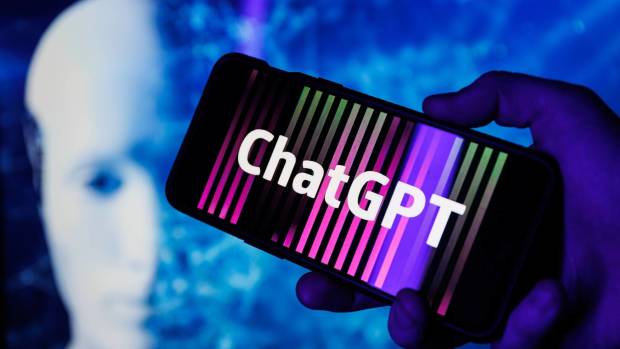
Few topics are as controversial as the use of artificial intelligence in the workplace.
Bring it up and you'll be sure to come across the diehard advocates singing praises despite a general atmosphere of apprehension — a recent survey found that 42% of Americans fear that AI will eventually make it harder for them to find work while seven in 10 are convinced that jobs in data entry, media and communications will be the first to go.
DON'T MISS: These Workers Claim They Secretly Use ChatGPT To Do 80% Of Their Jobs
That said, some have already been turning to ChatGPT and other AI-based platforms to save time at work and be more productive. Many real estate agents report using them to speed up writing home listing descriptions while a tech director of a large company recently admitted to using it to take on a side job writing code.

Shutterstock
Here's How You Can Leverage AI to Build Wealth, Shark Tank Guest Says
Matt Higgins, who founded the sports-focused investment firm RSE Ventures and is a regular guest on ABC's "Shark Tank," told CNBC that the two main ways to leverage AI for wealth-building come down to automating certain processes and improving efficiency.
"AI will be the greatest wealth creator in history, because artificial intelligence doesn't care where you were born, whether you have money, whether you have a PhD," Higgins said. "It's going to destroy barriers that have prevented people from moving up the ladder, and pursuing their dream of economic freedom."
Someone who does a main job can use it for things like pulling or organizing data and then have more time left over for innovation or, if one's work allows for it, taking on freelance roles.
For entrepreneurs, there are even fewer limitations to incorporating AI into what they do — some use it to pull data or analyze buying trends, others pre-write presentations and marketing materials while still others have a virtual chatbot to weed out simple customer questions before redirecting them to a human worker.
This Is When You Should And Shouldn't Use AI For Work
"It's not that if you don't jump on it now, you never can," Higgins said. "It's that now is the greatest opportunity for you to capitalize on it."
While ChatGPT's less mechanical and much more humanlike voice is what it made it explode in popularity at the start of 2023, over-reliance on such platforms has also been known to lead some workers to trouble.
Earlier this year, a New York man enlisted law firm Levidow, Levidow & Oberman to help him sue an airline for a metal cart injury. When the airline asked a Manhattan federal court to throw out the complaint, the judge couldn't find the cases referenced by the client's lawyers.
The two lawyers working on the case were forced to admit that they had used ChatGPT to find legal cases for precedent and did not notice that the platform had pulled up ones that did not actually exist. Both lawyers were eventually sanctioned and slapped with $5,000 fines for what the judge said was "bad faith.”
While the lines between what is and isn't ethical use of work-related AI are still being worked out, the answer gets clearer the more one moves away from speeding up small and minute parts of the job and toward passing off large swaths of AI-written material as one's own.
Get exclusive access to portfolio managers and their proven investing strategies with Real Money Pro. Get started now.







